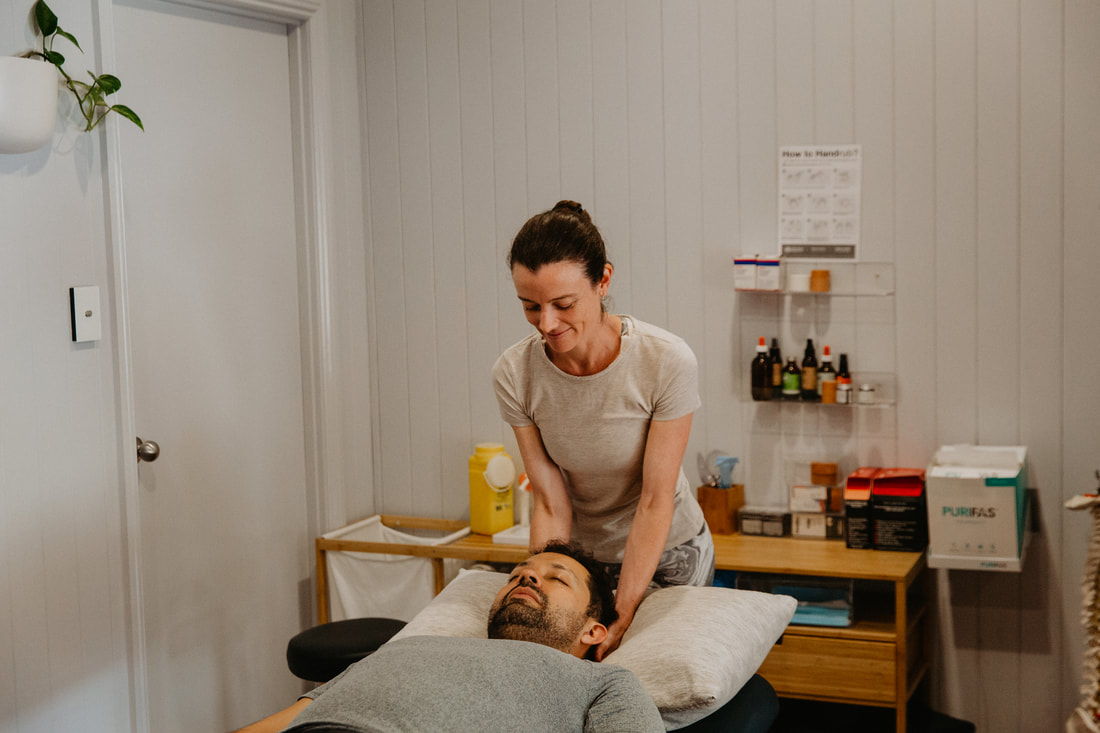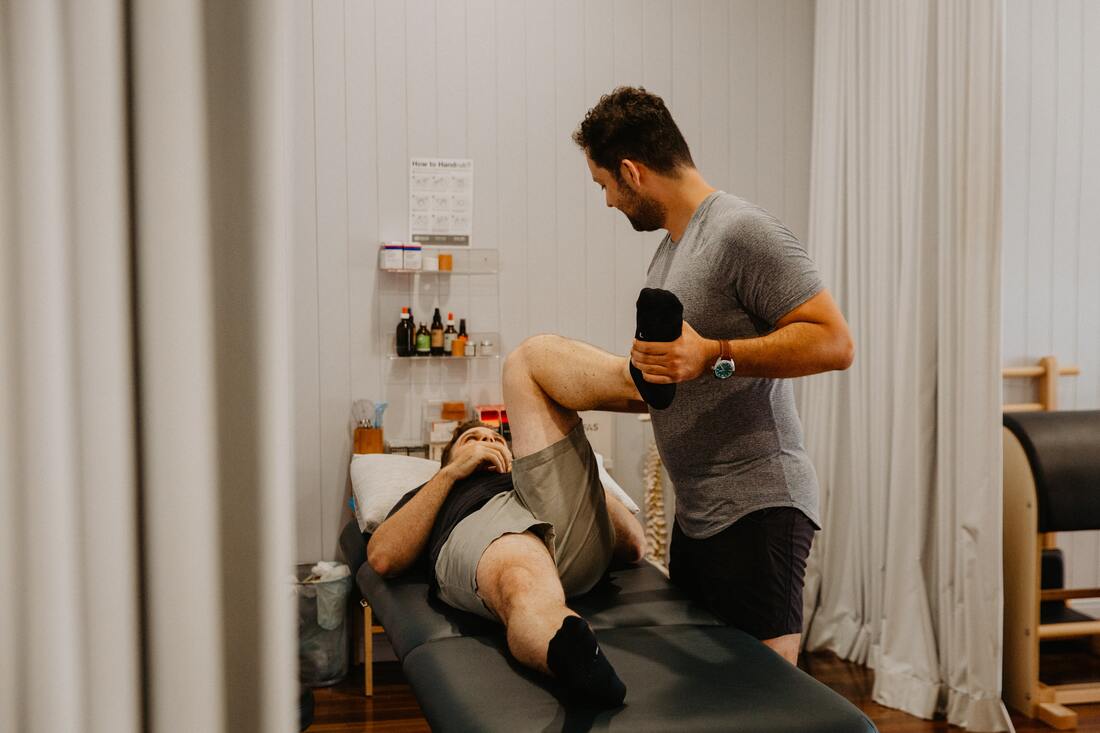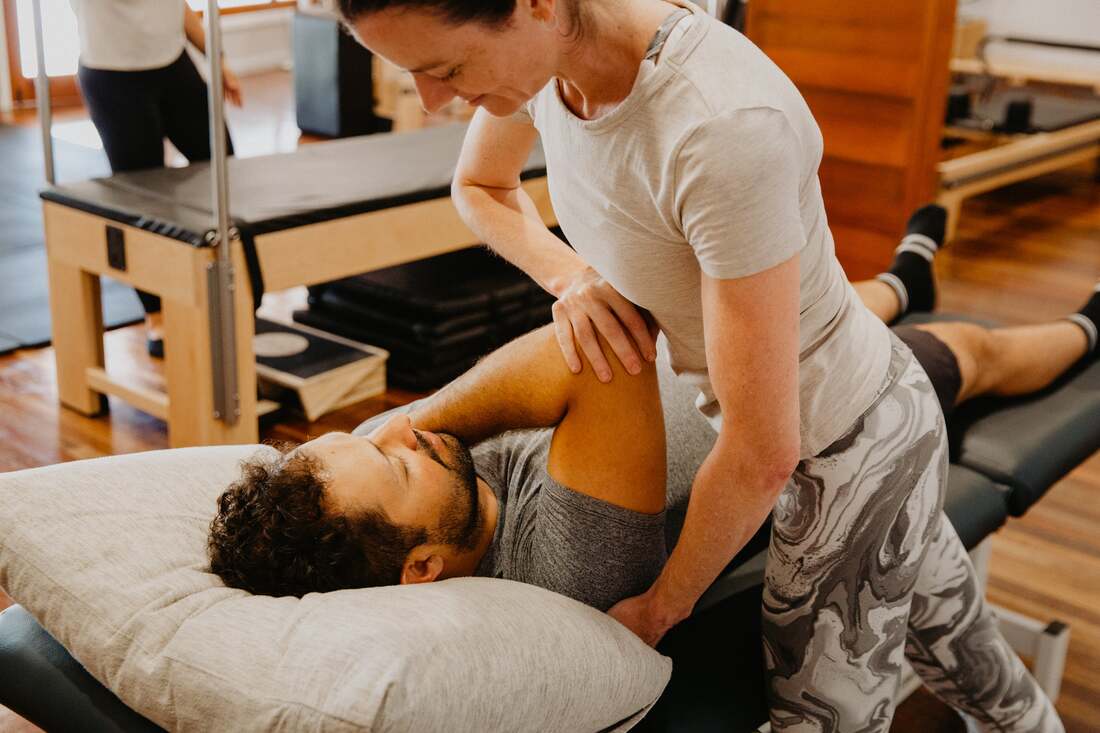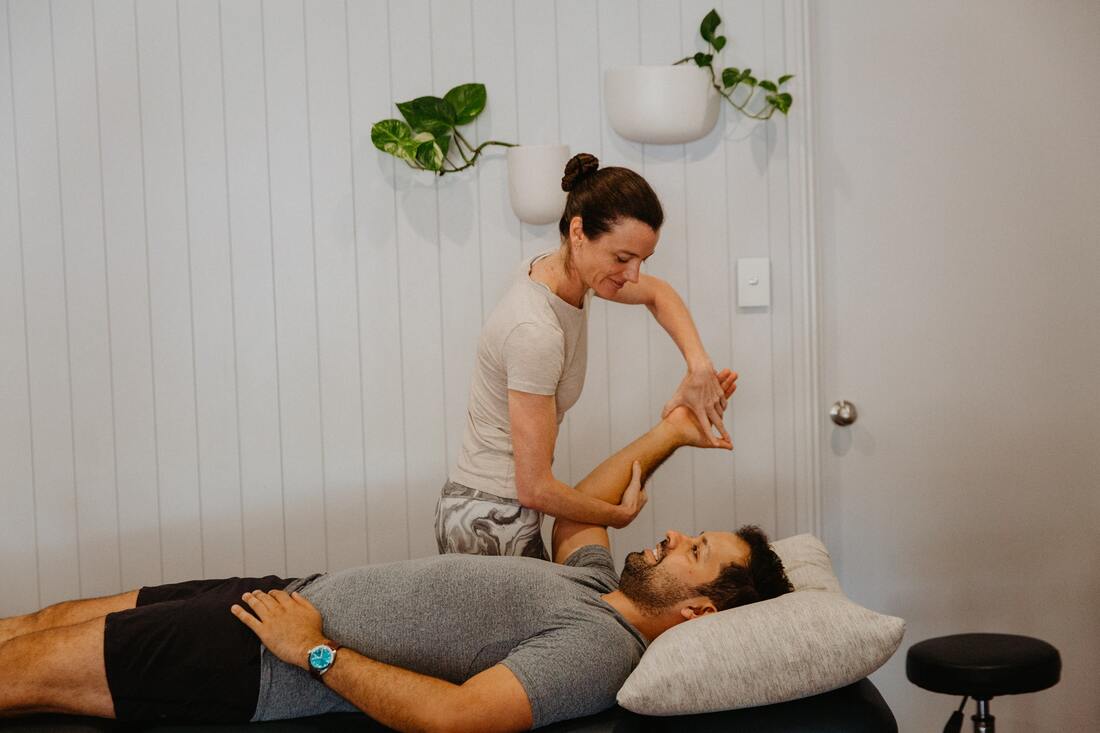Stroke rehabilitation physiotherapy Brisbane southside.
Stroke is a serious medical condition that occurs when blood flow to the brain is disrupted, leading to damage to brain cells. Stroke can result in a wide range of physical, cognitive, and emotional problems. Physiotherapy and clinical Pilates can play an important role in stroke rehabilitation by helping patients regain strength, mobility, and independence. In this article, we'll answer some common questions about stroke rehabilitation and how physiotherapy and clinical Pilates can help.
What are the different types of stroke?
There are two main types of stroke: ischemic stroke and hemorrhagic stroke. Ischemic stroke occurs when a blood clot blocks an artery supplying blood to the brain. Hemorrhagic stroke occurs when a blood vessel in the brain ruptures, causing bleeding in the brain.
What happens after a stroke?
The effects of stroke can vary widely depending on the severity and location of the brain damage. Some common effects of stroke include:
After a stroke, it's important to begin rehabilitation as soon as possible to improve the chances of recovery.
How can physiotherapy help in stroke rehabilitation?
Physiotherapy is an important part of stroke rehabilitation. A physiotherapist can work with stroke patients to improve strength, mobility, and coordination. Physiotherapy can also help with pain management and reduce the risk of future strokes. Some common techniques used in physiotherapy for stroke rehabilitation include:
How can clinical Pilates help with stroke rehabilitation?
Clinical Pilates is a form of exercise that focuses on building core strength, improving posture, and enhancing body awareness. Clinical Pilates can be an effective tool for stroke rehabilitation because it emphasizes gentle, controlled movements that can help improve balance, coordination, and flexibility. Clinical Pilates can also help improve muscle tone and reduce muscle stiffness. Some common techniques used in clinical Pilates for stroke rehabilitation include:
Other important considerations for stroke rehabilitation
In addition to physiotherapy and clinical Pilates, stroke rehabilitation may also involve other medical professionals, such as occupational therapists, speech therapists, and psychologists. It's important for stroke patients to work with a team of healthcare professionals to develop a comprehensive rehabilitation plan that addresses their unique needs and goals.
If you or a loved one has suffered a stroke, contact our physiotherapy clinic to learn more about how we can help with stroke rehabilitation. Our experienced physiotherapists and clinical Pilates instructors can work with you to develop a personalized rehabilitation plan that can help you regain your strength, mobility, and independence.
Our physiotherapists can develop a customised treatment plan tailored to each individual's needs and goals. With the help of physiotherapy, many people with neurological conditions can improve their movement and function, reduce pain, and improve their quality of life. If you or a loved one has a neurological condition and would like to find out more about how our team can help, please don't hesitate to give us a call on 07 3706 3407 or email us at [email protected]. We are happy to accept CDMPs and NDIS patients.
What are the different types of stroke?
There are two main types of stroke: ischemic stroke and hemorrhagic stroke. Ischemic stroke occurs when a blood clot blocks an artery supplying blood to the brain. Hemorrhagic stroke occurs when a blood vessel in the brain ruptures, causing bleeding in the brain.
What happens after a stroke?
The effects of stroke can vary widely depending on the severity and location of the brain damage. Some common effects of stroke include:
- Weakness or paralysis on one side of the body
- Difficulty with balance and coordination
- Difficulty with speech and communication
- Problems with memory and cognition
- Emotional changes, such as depression or anxiety
After a stroke, it's important to begin rehabilitation as soon as possible to improve the chances of recovery.
How can physiotherapy help in stroke rehabilitation?
Physiotherapy is an important part of stroke rehabilitation. A physiotherapist can work with stroke patients to improve strength, mobility, and coordination. Physiotherapy can also help with pain management and reduce the risk of future strokes. Some common techniques used in physiotherapy for stroke rehabilitation include:
- Range-of-motion exercises to prevent muscle stiffness and joint contractures
- Strength training exercises to improve muscle function and prevent muscle atrophy
- Gait training to improve walking ability and balance
- Neurological rehabilitation to improve coordination and motor control
- Pain management techniques such as heat therapy and massage
How can clinical Pilates help with stroke rehabilitation?
Clinical Pilates is a form of exercise that focuses on building core strength, improving posture, and enhancing body awareness. Clinical Pilates can be an effective tool for stroke rehabilitation because it emphasizes gentle, controlled movements that can help improve balance, coordination, and flexibility. Clinical Pilates can also help improve muscle tone and reduce muscle stiffness. Some common techniques used in clinical Pilates for stroke rehabilitation include:
- Core strengthening exercises to improve posture and balance
- Pelvic floor exercises to improve bladder control
- Stretching exercises to reduce muscle stiffness and improve flexibility
- Breathing exercises to improve lung function and reduce stress
Other important considerations for stroke rehabilitation
In addition to physiotherapy and clinical Pilates, stroke rehabilitation may also involve other medical professionals, such as occupational therapists, speech therapists, and psychologists. It's important for stroke patients to work with a team of healthcare professionals to develop a comprehensive rehabilitation plan that addresses their unique needs and goals.
If you or a loved one has suffered a stroke, contact our physiotherapy clinic to learn more about how we can help with stroke rehabilitation. Our experienced physiotherapists and clinical Pilates instructors can work with you to develop a personalized rehabilitation plan that can help you regain your strength, mobility, and independence.
Our physiotherapists can develop a customised treatment plan tailored to each individual's needs and goals. With the help of physiotherapy, many people with neurological conditions can improve their movement and function, reduce pain, and improve their quality of life. If you or a loved one has a neurological condition and would like to find out more about how our team can help, please don't hesitate to give us a call on 07 3706 3407 or email us at [email protected]. We are happy to accept CDMPs and NDIS patients.



